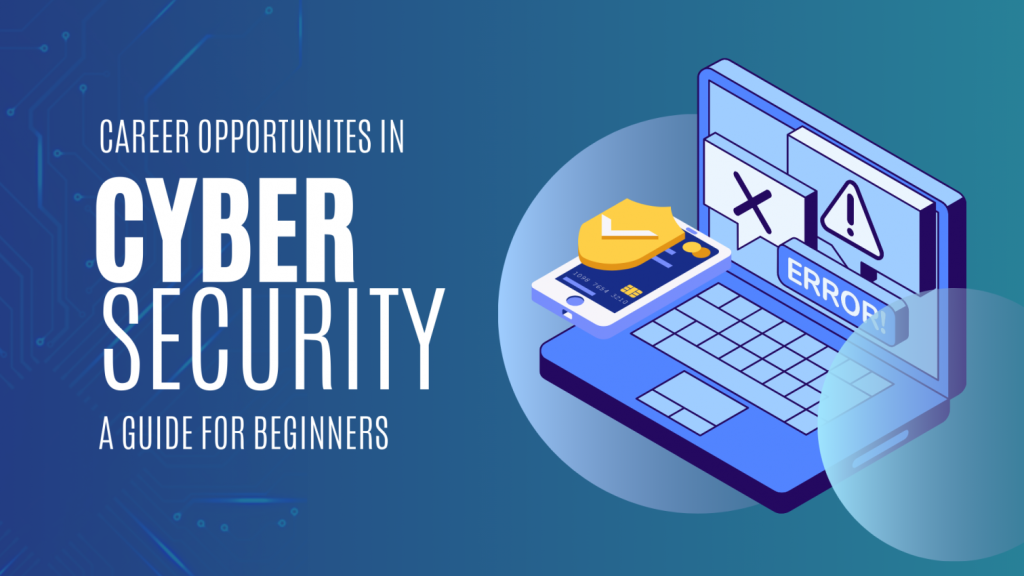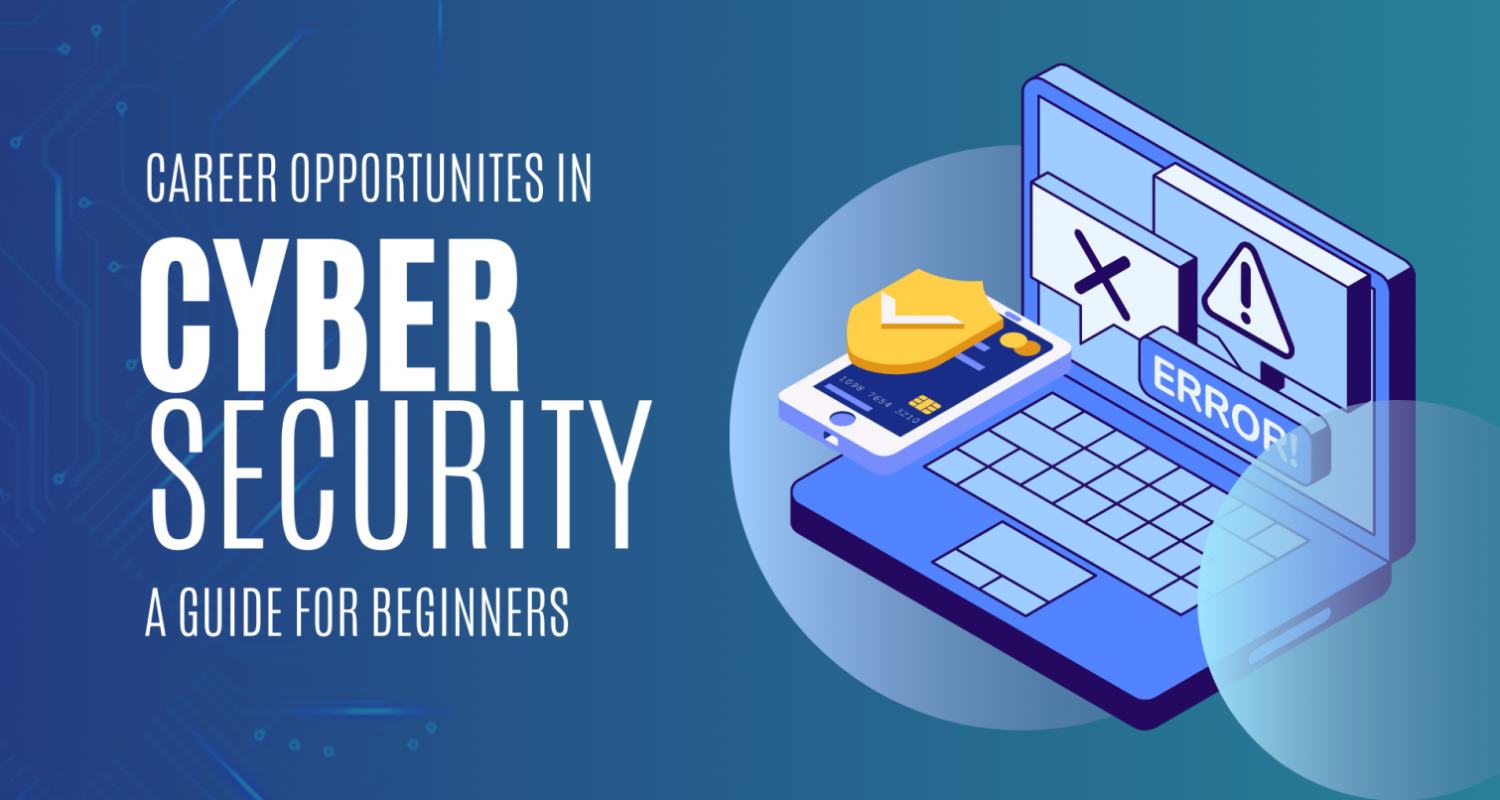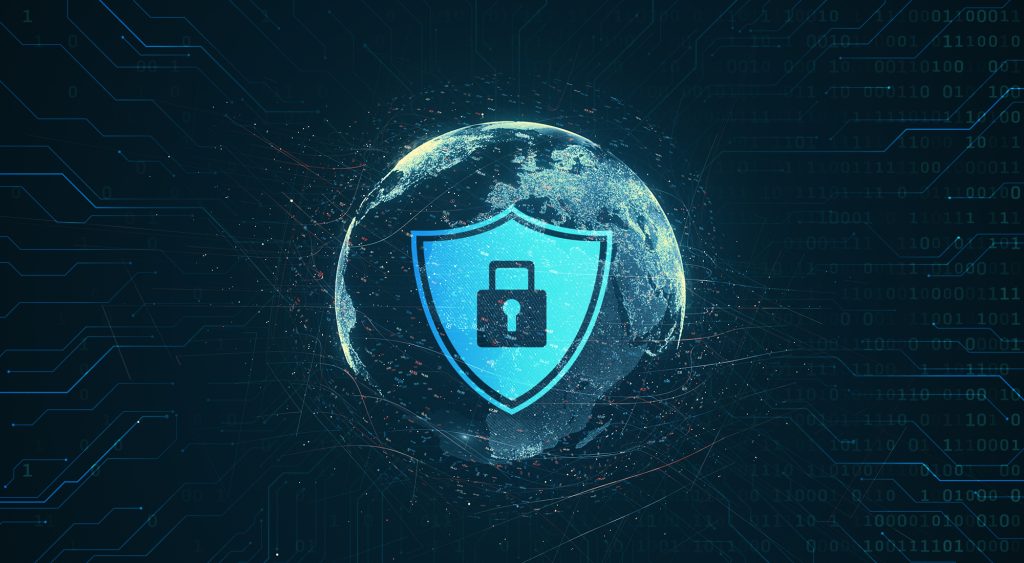
Introduction: Why Cybersecurity is on the Rise
As our lives and businesses become increasingly digital, the importance of cybersecurity cannot be overstated. With cyber threats on the rise and organizations facing sophisticated cyber attacks, the demand for cybersecurity professionals is growing rapidly. Cybersecurity careers are not only essential for protecting data but also offer secure, high-paying, and future-proof job opportunities.
In this post, we’ll explore why cybersecurity has become a necessity, the job growth in this field, the kinds of security jobs available, and how you can start your journey into one of today’s most promising technology careers.
1. Cyber Threats: The Need for Vigilance and Security
Cyber threats are evolving at an alarming rate, impacting individuals, businesses, and governments alike. From data breaches and identity theft to ransomware attacks, cybercriminals are constantly finding new ways to exploit vulnerabilities. This continuous rise in cyber threats has made cybersecurity one of the top priorities for organizations across all sectors.
In 2023, global cybercrime costs reached an estimated $8.4 trillion, and these figures are only expected to grow. With sensitive data and intellectual property at risk, the need for skilled cybersecurity professionals is greater than ever. These professionals play a crucial role in identifying and neutralizing threats, protecting systems, and maintaining public trust. As cyber threats grow more complex, organizations are investing heavily in cybersecurity to safeguard their data and operations.
2. Job Growth in Cybersecurity: A Career with Limitless Potential
The demand for cybersecurity professionals is skyrocketing, with cybersecurity roles projected to grow by 35% over the next decade. This growth is outpacing many other technology careers, making cybersecurity a highly attractive career path. This growth stems from multiple factors, including:
- Digital Transformation: As companies adopt digital solutions, they need stronger cybersecurity measures to protect their digital assets.
- Remote Work Trends: With more employees working remotely, businesses face new cybersecurity challenges as they extend networks and resources beyond traditional office settings.
- Increased Cyber Threats: Cybercriminals are continuously devising new tactics, prompting companies to prioritize cybersecurity.
The high demand for cybersecurity skills is not limited to tech companies; industries such as healthcare, finance, retail, and even small businesses are hiring cybersecurity experts. In response, colleges and training programs are expanding their cybersecurity curriculums to prepare students for this rapidly growing field.
3. Why Cybersecurity is an Excellent Career Choice
Cybersecurity isn’t just about job security; it’s about joining a field that offers continuous learning, high job satisfaction, and a sense of purpose. Here are some reasons why cybersecurity is an ideal career choice:
- High Demand and Job Security: Cybersecurity professionals enjoy job stability, even during economic downturns, as the need for data protection is always present.
- Competitive Salaries: Cybersecurity roles often come with attractive salaries. Entry-level positions like cybersecurity analyst start at around $60,000 per year, while experienced professionals can earn six-figure incomes.
- Diverse Career Paths: With roles ranging from ethical hackers and security analysts to chief information security officers (CISOs), the cybersecurity field offers diverse career paths and opportunities for specialization.
- Sense of Purpose: Many cybersecurity professionals feel a strong sense of purpose, as their work helps protect individuals and organizations from harmful attacks.
As technology evolves, the scope of cybersecurity will expand, offering endless opportunities for career growth and advancement.
4. Key Skills Needed for a Career in Cybersecurity
Cybersecurity is a technical and dynamic field, requiring a unique combination of skills. To thrive in cybersecurity, aspiring professionals need to develop the following core competencies:
- Technical Knowledge: Understanding of network security, encryption, and data protection.
- Problem-Solving Skills: Cybersecurity professionals need to think critically to identify and mitigate risks.
- Analytical Abilities: Strong analytical skills are essential to detect patterns and predict potential threats.
- Knowledge of Security Tools and Software: Familiarity with tools like firewalls, antivirus software, and intrusion detection systems is crucial.
- Communication Skills: Cybersecurity professionals often work with teams and communicate complex concepts, so strong communication skills are a plus.
Specialized skills, such as ethical hacking and programming, are also highly valued in the field. Certifications, including CompTIA Security+, Certified Information Systems Security Professional (CISSP), and Certified Ethical Hacker (CEH), help validate these skills and enhance job prospects.
5. Top Cybersecurity Job Roles and Opportunities
Cybersecurity offers a range of job roles to suit different interests and skill sets. Here are some of the most in-demand positions:
- Cybersecurity Analyst: Analysts monitor and protect an organization’s networks and data, responding to security incidents and analyzing vulnerabilities.
- Ethical Hacker (Penetration Tester): Ethical hackers use hacking techniques to test the security of systems and uncover weaknesses before malicious hackers do.
- Security Architect: Security architects design and build secure IT infrastructures, ensuring that networks and data remain protected.
- Incident Responder: Incident responders specialize in managing and resolving security breaches when they occur, minimizing damage and preventing future incidents.
- Chief Information Security Officer (CISO): CISOs oversee an organization’s cybersecurity strategy, policies, and implementation, often taking on a leadership role in managing security risks.
These roles represent just a few of the diverse opportunities available in cybersecurity, allowing professionals to choose paths that align with their interests and career goals.

6. Cybersecurity Salary Insights: Earning Potential in Security Jobs
The earning potential in cybersecurity is another reason this field attracts so many job seekers. Salaries vary based on job role, experience, and location, but cybersecurity professionals are generally well-compensated:
- Entry-Level Positions: Positions like cybersecurity analysts typically start at $60,000 to $70,000 per year.
- Mid-Level Positions: Roles such as security architects and ethical hackers can earn between $90,000 to $120,000 per year.
- Senior-Level Positions: Chief Information Security Officers (CISOs) and other senior roles can earn over $150,000, with some reaching up to $200,000 per year.
In addition to competitive salaries, many cybersecurity roles offer bonuses, remote work options, and professional development support, making cybersecurity a financially rewarding career.
7. Getting Started in Cybersecurity: Your Pathway to Success
Starting a career in cybersecurity is achievable with the right education, training, and experience. Here are steps to help you get started:
- Education and Degrees: A degree in computer science, information technology, or cybersecurity is helpful, but many professionals transition into cybersecurity from other fields.
- Certifications: Industry-recognized certifications, such as CISSP, CEH, and CompTIA Security+, can enhance your resume and validate your skills.
- Gain Hands-On Experience: Entry-level positions, internships, and volunteer opportunities are valuable for gaining real-world experience.
- Stay Updated: Cybersecurity is constantly evolving, so staying updated with the latest trends, tools, and threats is essential for career growth.
- Network and Connect: Joining professional organizations, attending industry events, and connecting with mentors can open doors and provide guidance.
By following these steps, you’ll be well-prepared to launch a successful career in cybersecurity.
8. The Future of Cybersecurity: Emerging Trends and Opportunities
The cybersecurity landscape is evolving, driven by technological advancements and emerging threats. Some key trends shaping the future of cybersecurity include:
- Artificial Intelligence (AI) and Machine Learning: AI is being used to detect threats in real-time, helping cybersecurity teams respond faster and more effectively.
- Cloud Security: As more organizations move to the cloud, cloud security has become a top priority.
- IoT Security: The Internet of Things (IoT) is expanding, and securing IoT devices has become critical to protecting networks.
- Zero-Trust Security: Organizations are adopting zero-trust frameworks to strengthen security by verifying every user and device.
These trends represent exciting areas of growth and opportunity for cybersecurity professionals, as new threats and technologies continue to emerge.
Conclusion: Why You Should Consider a Career in Cybersecurity
Cybersecurity is not just a career; it’s a vital field that protects people, businesses, and society from digital threats. With a wide range of roles, competitive salaries, and continuous demand, cybersecurity offers a secure, rewarding, and purpose-driven career path.
Whether you’re a student, a recent graduate, or a professional considering a career change, now is an excellent time to enter the field of cybersecurity. This growing industry offers unmatched opportunities for those with a passion for technology and a commitment to keeping data safe. As cyber threats increase, so does the need for cybersecurity experts—making it the career of the future.
Start your journey today, and you’ll be stepping into a field that’s dynamic, in-demand, and essential for our digital world. Cybersecurity isn’t just a job; it’s a chance to make a real impact in a field where your skills and dedication can truly make a difference.







